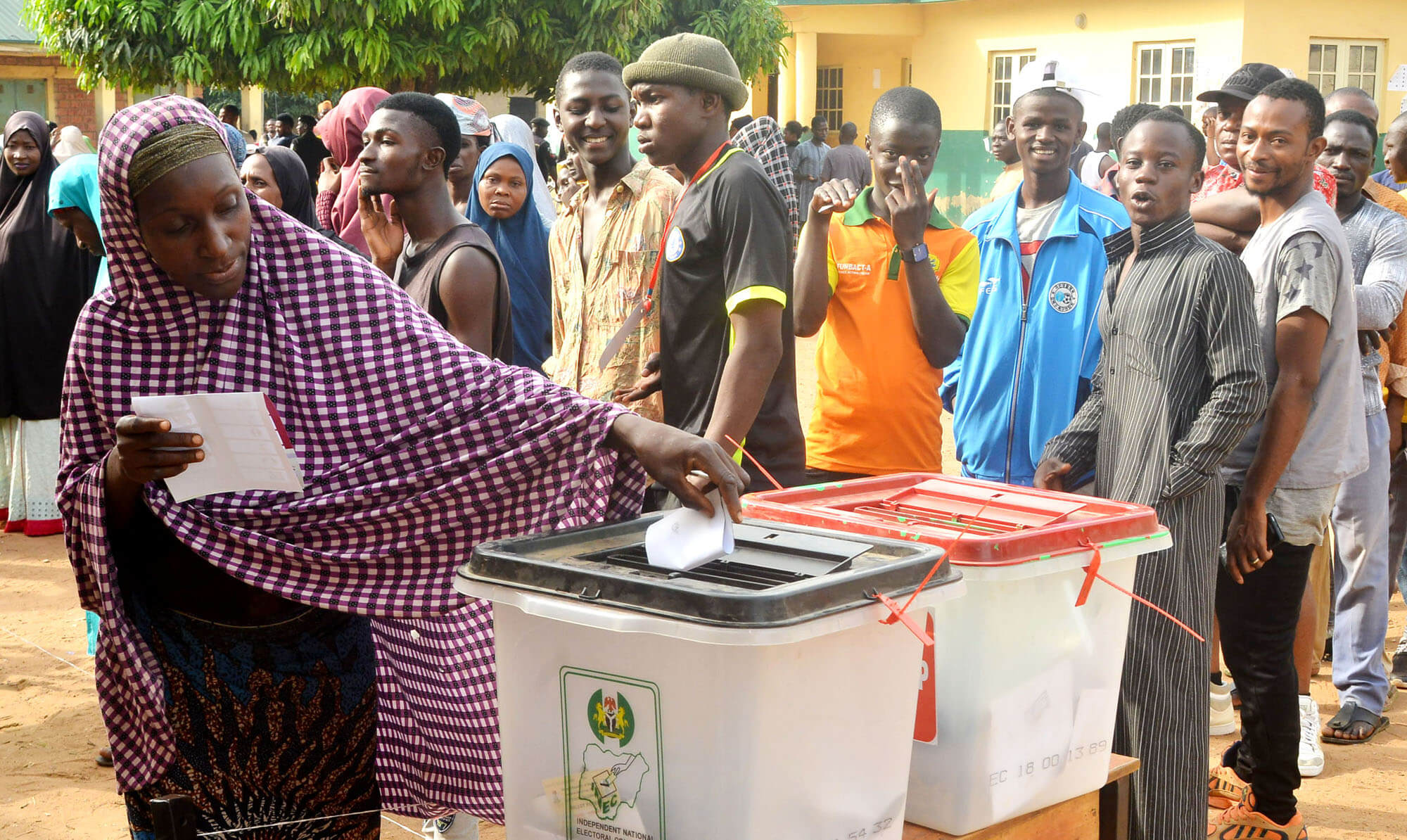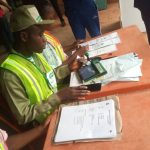Going by the latest figure released by Nigeria’s election body, the Independent National Electoral Commission or INEC, 87.21 million Nigerians are expected at the polls tomorrow, February 25, to elect their next president.
These citizens have collected their permanent voter’s cards or PVCS, representing 93.3% of the 93 million registered voters.
In the 2019 presidential elections, the total number of registered voters was 84 million, but only 72.8 million, or 86.6%, collected their PVCs.
There is a 9 million difference between the total registered voters in 2019 and 2023, and there is a 14.4 million difference between the number of registered voters who collected their cards in 2019 and those who have theirs for the 2023 election.
This means there has been a 16.5% spike in voter interest within the last four years. Another thing to note is that only 35% of the 72.8 million who collected their cards in 2019 actually voted, revealing a high voter apathy.
But based on the spike in voter interest leading into the 2023 elections and the youths’ use of social media to mobilise support for their candidates, analysts predict a voter turnout of not less than 90%.
It is the first time since 2003 that the voter turnout rate is expected to exceed 69%. It jumped from 52.3% in 1999 to 69.1% in 2003, sliding to 57.49 in 2007, then down to 43.65% in 2011, and further down to 22% in 2015 before balancing at 35% in 2019.
Cause of abysmal voter turnout
“Not voting is a form of protest. Some of the apathetic say, ‘my vote will not count. After all, look at the way they have been embezzling money. It will be the same thing. Even if I vote, it will not make a difference,” said a University don, Emma Ojukwu.
“Some are 50 years old, and some are 60. They have been voting for a long time, and nothing good has come out of it. So, the despondency and the hopelessness in the system will be difficult to erase.”
But there are consequences.
“When people stay away from voting, there is misgovernance. When you do not vote [because] you think that politics is dirty, some people will vote and succeed in electing fools who will govern you,” Ojukwu said.
It is gratifying to note that if the feelers from the time of registration leading to pre-election time are reliable, the level of apathy may drastically reduce in the 2023 general election.
Prime Progress interacted with some enthusiastic Nigerians who shared their reasons for resolving to be part of the process with him.
“This time, I have decided to vote because the economy and the country’s general situation are no longer funny,” said 30-year-old Ifeanyi from Anambra State, who has never voted. “People are dying of hunger and starvation. We need to send those old cargo politicians, who have never delivered any good to us, back to their villages”.
Ifeanyi is not alone. Michael Dada voted last during the 1993 presidential election.
“I voted last during MKO Abiola’s election. Since then, I decided never [to vote] again. But I have seen that not voting is like cheating myself. With the sufferings in the land, I can no longer stay aloof and complain about bad leadership,” he said.
“I want to join other Nigerians in electing a good leader who will help to transform Nigeria to the satisfaction of all of us.”
For Mary, a woman in her 40s from Anambra, who voted last 20 years ago: “All the while, I felt like it does not really concern me. Now, we are feeling it; even unborn babies know about the despondency in Nigeria. Look at the prices of things. We need a new Nigeria, and we need fresh air. I am coming all out to be part of the election. I can’t wait to cast my vote for my candidate.”
Youths constitute over 60% of the voting population and have been active on social media about their interest in voting.
But “What I do not know is whether all that I have read on social media will translate into votes,” said Ojukwu, who lectures at the Political Science Department of the Nnamdi Azikiwe University, Anambra.
“But, the mobilisation for this 2023 election is very high. With the BVAS machine, which will drastically reduce rigging, at the end of the elections, if all we are expecting comes through, it means that there will be more improvement in voter turnout.”
Regardless of the number who will present themselves physically for voting at the various polling booths, others who decide to stay away are not aloof. They are complicit if the wrong person is elected because they have the power to elect the right person but refuse to use it.
They are passive participants – ghosts – who indirectly cast their votes in beer parlous, on the streets, on football pitches, and within the comfort of their houses.
“I advise all to put any discouragement aside and cast their votes. If I vote, you vote, another person votes, and it runs into millions, the candidate of their choice will emerge. Being apathetic will not save the situation; it will rather worsen it after the election,” Ojukwu counselled.






